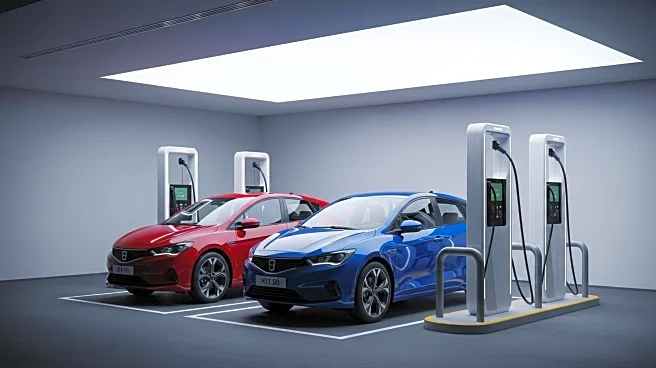What's Happening?
Nissan is undertaking a significant cost-cutting initiative aimed at saving $1.7 billion by March 2027. The company's new CEO, Ivan Espinosa, has tasked Tatsuzo Tomita, referred to as Nissan's 'cost czar,' with identifying and implementing cost-saving measures. Tomita has reviewed 4,000 ideas, deeming 1,600 viable, which include reducing the variety of headrests and using more cost-effective suppliers. The goal is to streamline operations without compromising product quality, allowing Nissan to reinvest in research and development. This initiative is part of a broader strategy to improve profitability and ensure sustainable business practices.
Why It's Important?
The cost-cutting measures are crucial for Nissan as they aim to enhance profitability and maintain competitiveness in the automotive industry. By reducing costs, Nissan can allocate more resources to innovation and product development, potentially leading to improved market offerings. This strategy could also influence other automakers to adopt similar practices, impacting the global automotive supply chain. The focus on efficiency and cost management is essential for Nissan to navigate the challenges of fluctuating market demands and economic conditions.
What's Next?
Nissan plans to begin implementing some of the identified cost-saving measures by the end of the year. The company will monitor the impact of these changes on its operations and financial performance. Stakeholders, including employees and suppliers, may need to adapt to new processes and standards. The success of this initiative could lead to further strategic adjustments and influence Nissan's long-term business model.
Beyond the Headlines
The decision to cut costs while maintaining quality highlights the delicate balance companies must strike between efficiency and customer satisfaction. Nissan's approach may set a precedent for how automakers manage operational costs in a competitive market. Additionally, the reliance on Chinese suppliers underscores the global nature of the automotive supply chain and the importance of international partnerships in achieving cost efficiencies.










